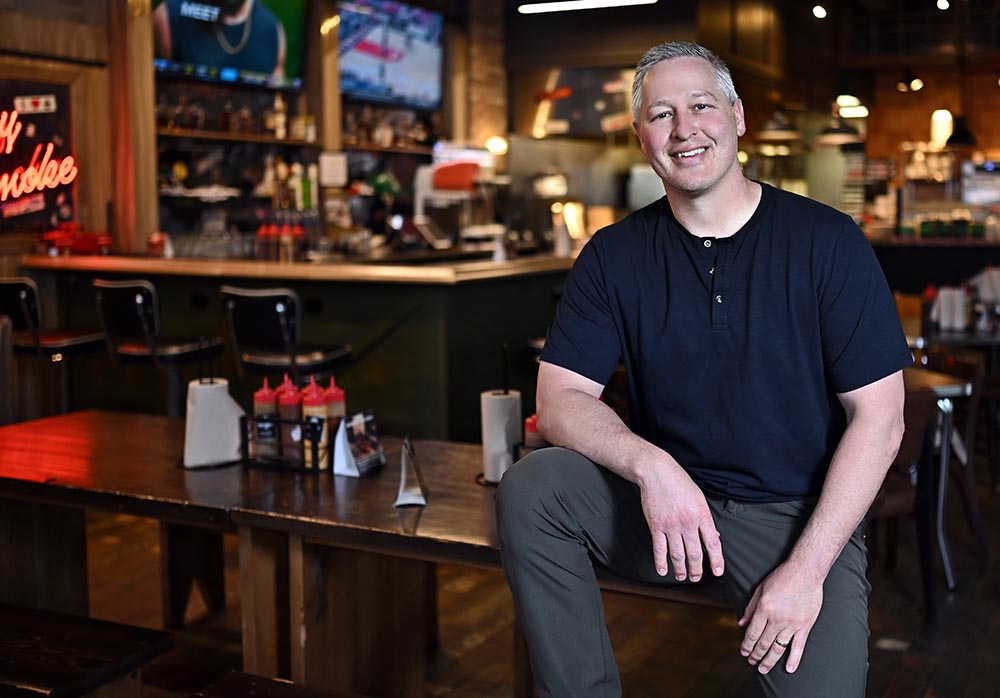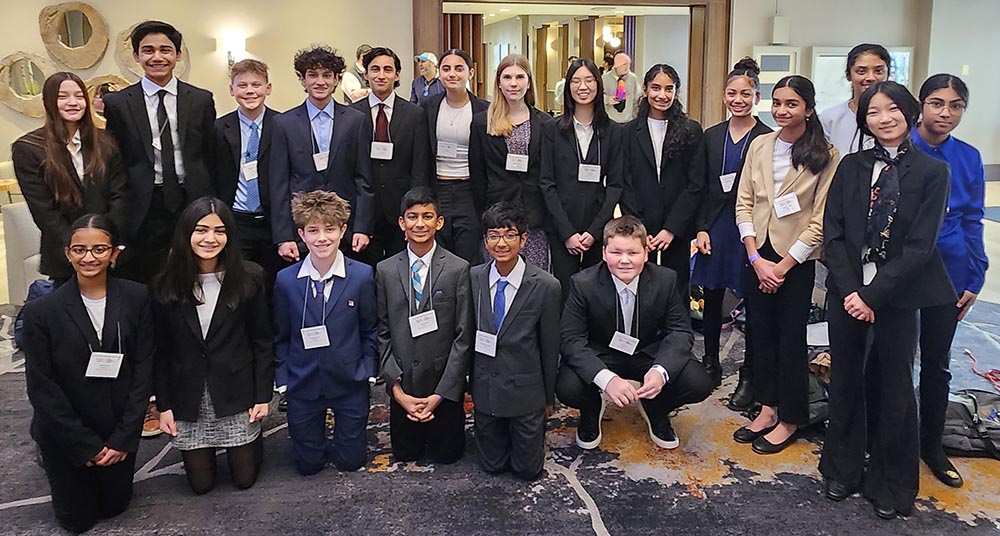Building Hope: The O’Brien School for the Maasai

Local Hinsdale woman continues to help provide
remarkable futures for the Maasai village
By Mia Jones
Walking through 82-year-old Kellie O’Brien’s’ home, it is clear to see her love for gardening and landscaping design, but the Hinsdale-based horticulturalist has also experienced a calling that has grown into a larger project in the last 17 years to aid Maasai youth in “finding their greatness.”
When O’Brien first met with the Maasai community in 2007, she decided to take up an instrumental part in helping them with their desire for a school. The Maasai people are a pastoralist group, and they move to different areas to take care of their animals. However, the Tanzanian government has prohibited them from living on many of the lands they once occupied. So, for over a decade now, they have turned to education.
There are nearly 400 children currently attending the O’Brien School for the Maasai in the Sanya Station Village of the Kilimanjaro Region in Northern Tanzania. All the children are learning to speak, read, and write English as first-generation students. There are a total of 43 employees at the school, and all the teachers are Tanzanian.
“I’ve never once looked back and thought, ‘What the heck did I just do?’,” said O’Brien.
O’Brien notes that the graduating classes from the O’Brien School for the Maasai are nothing short of intelligent. The children go on to attend secondary school, which is usually a boarding school, and typically end up top of their class, said O’Brien. In fact, there are currently two young men who graduated from the O’Brien School for the Maasai and are now studying at medical school in Denver, Colorado.
One major reason for such success, according to O’Brien, is that the children are fed breakfast and lunch every day while at school. The school partners with Feed My Starving Children to distribute manna packs to the children, which contain a nutritional value that the Maasai aren’t used to getting out of their typical diets.
The children are also provided with an environment where they have classrooms equipped with school supplies, such as pencils, desks, chairs, and art supplies. Students can choose to participate in various activities through school clubs, such as debating, painting, or playing. musical instruments like guitar. As for proper hydration, a well was built for clean access to water, and the children are given water bottles to take home with them after school.
The O’Brien School for the Maasai strives to teach not only academics but also important life lessons, such as the joy that comes from giving acts of kindness to others, said O’Brien. She recalled how a 7th-grade class washed the chairs of a 1st-grade class and how happy everyone was to participate in what might seem like a simple task.
“You can write a definition on the board, but they have to experience it,” said O’Brien.
The school also created a gardening club for the children to learn more about taking care of the Earth and growing their own produce. This enables the Maasai to take innovative food-growing skills with them into their futures despite the harsh dry season they experience in Tanzania, said O’Brien.
Children are not the only ones who reap benefits from the O’Brien School for the Maasai. Widows and members of the community, along with two Cameroon men who helped supervise the project, constructed a “Reception House” out of 10,000 two-liter plastic water bottles that tourists on the roads of Tanzania had littered. The widows were hired to help with this project, and additional support came from the Bottles2Bricks Foundation and the Build a School Foundation. One water bottle has a life expectancy of 500 years, making the building very sustainable. 11 tons of fine sand fills the water bottles to hold them down in the structure.
“I don’t even know what 10,000 looks like,” said O’Brien.
Recently, guest houses were constructed so that visitors have a place to stay when they come to see Tanzania. The money collected from people coming to stay in the guest houses helps support the children going to secondary school. This is especially important for the young girls, who face being sold off for bride prices, said O’Brien.
Maasai women create beaded jewelry at the school so they can sell it for income. This allows them to accumulate money to pay for their children’s school fees and to support their families, said O’Brien. Additionally, a store was built for 12 women to host three individual businesses. Showing women that they too can be leaders and entrepreneurs to secure a steady future in the world reveals how the O’Brien School for the Maasai is more than just a school, said O’Brien.
“I’m not a bulldozer. I’m there to work with them and how we can improve the future of their children,” said O’Brien.
As for current concerns for the Maasai, the Tanzanian government recently mandated that kindergarten classes take place in their own building, meaning they are separate from the other grades. The O’Brien School for the Maasai must build two new classrooms for kindergarten, leading to unexpected costs, said O’Brien. Christ Church of Oak Brook has already donated $7,000 for these two classrooms, but it will cost a total of about $30,000 to build the classrooms. On top of that, the Tanzanian government now requires cooking with gas, so the kitchens at the school must be transformed into gas stoves, something that the Maasai are not as familiar with, said O’Brien. The school is also hoping to encounter someone with a solar business who could potentially donate solar panels for more green initiatives at the school.
When people ask O’Brien about the future of the school and long-term plans, her answer is always the same: “I just want to do ‘the next right thing,’” said O’Brien.
The work put into this school would not be possible without the countless donations from various community members and organizations, said O’Brien. School supplies from District 181, water bottles from Notre Dame Parish, and girls’ kits with menstrual supplies from the National Charity League have aided O’Brien in her work.
“Everyone sees their faces, but I see their hearts,” O’Brien said.
To read more about The O’Brien School for the Maasai and what can be done to continue the school’s mission, visit obrienschool.org
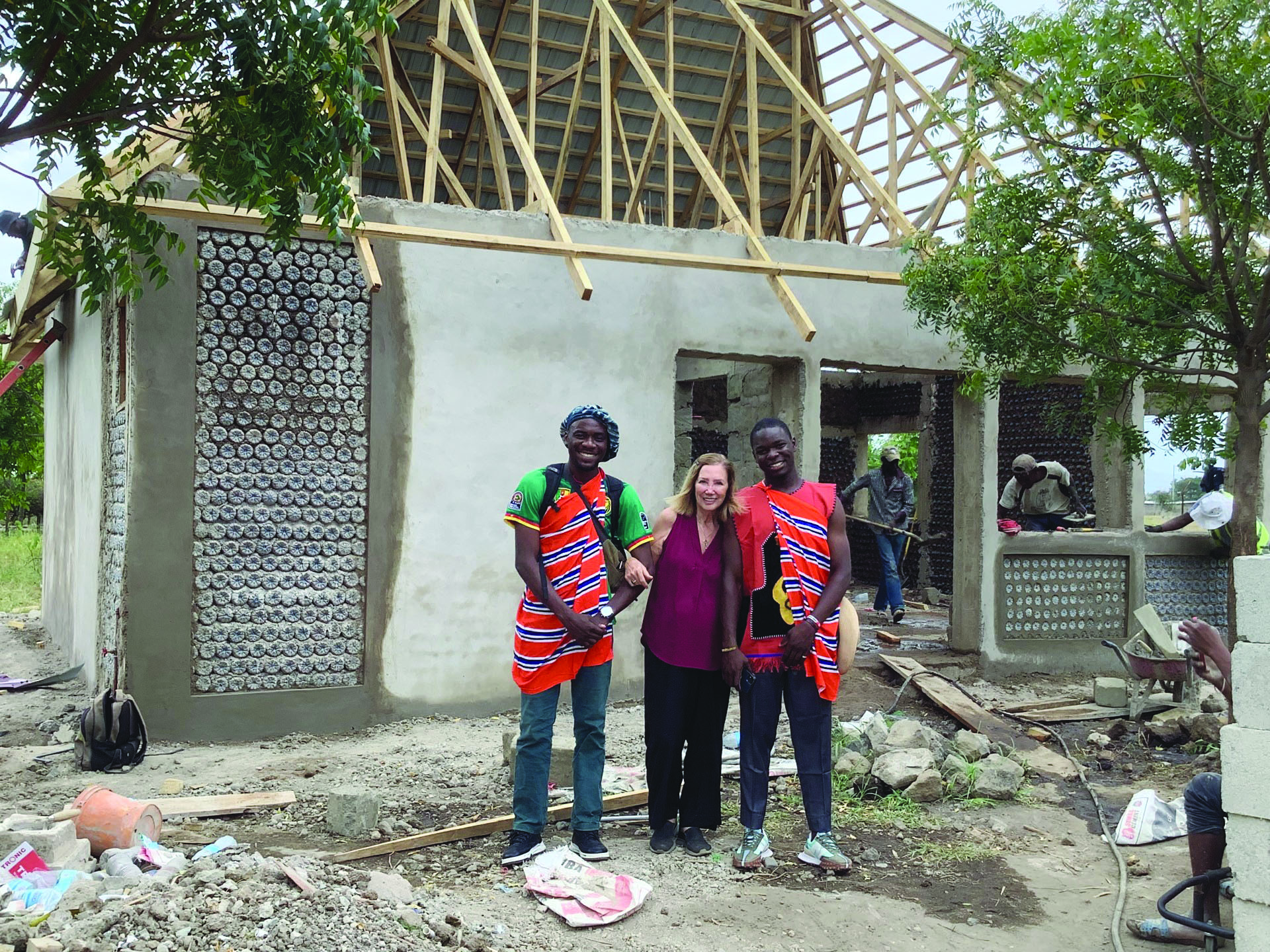
O’Brien and the two young men from Cameroon who came to help supervise the construction of the Reception House.
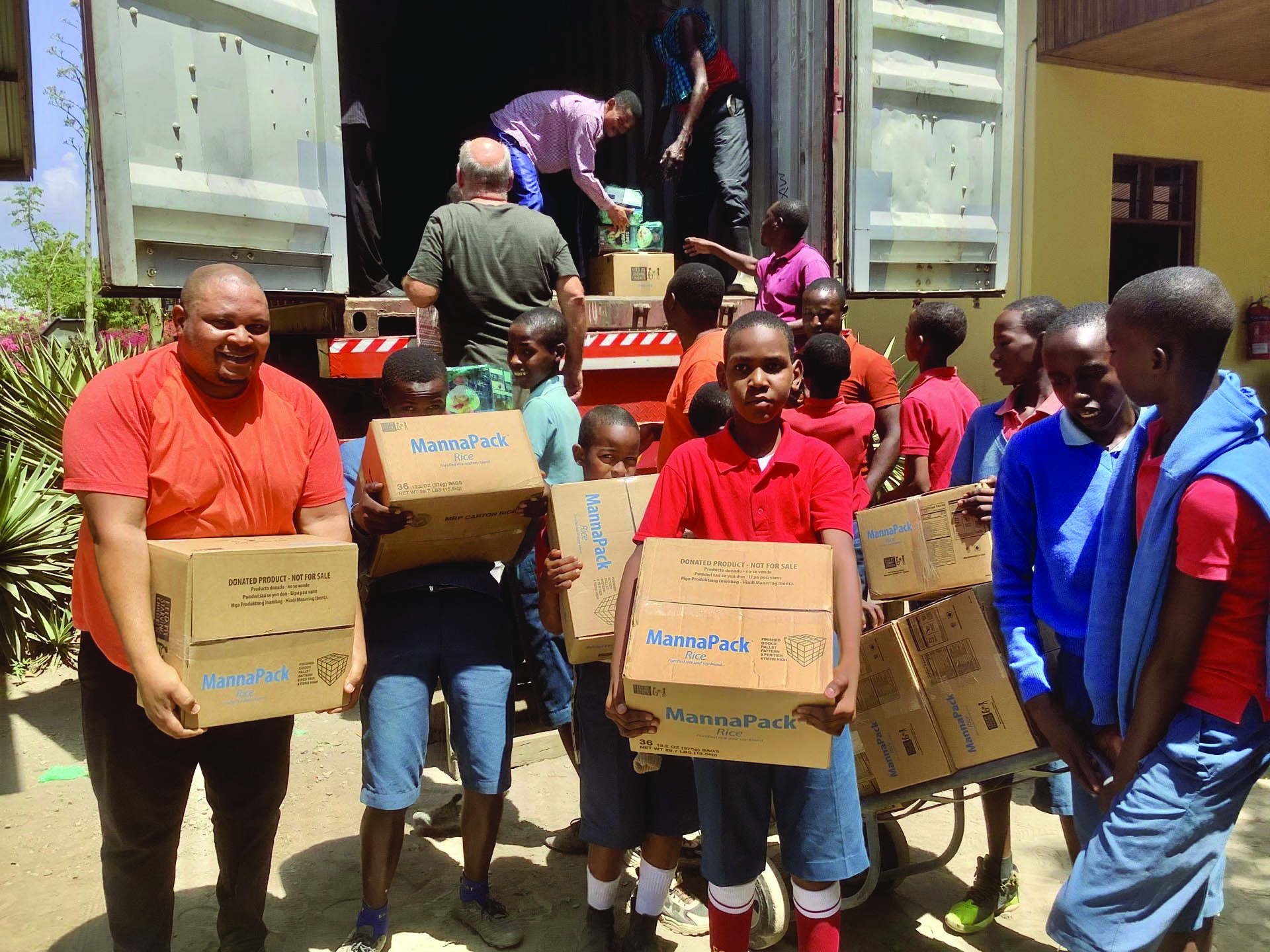
The Maasai unloading a container filled with manna packs.
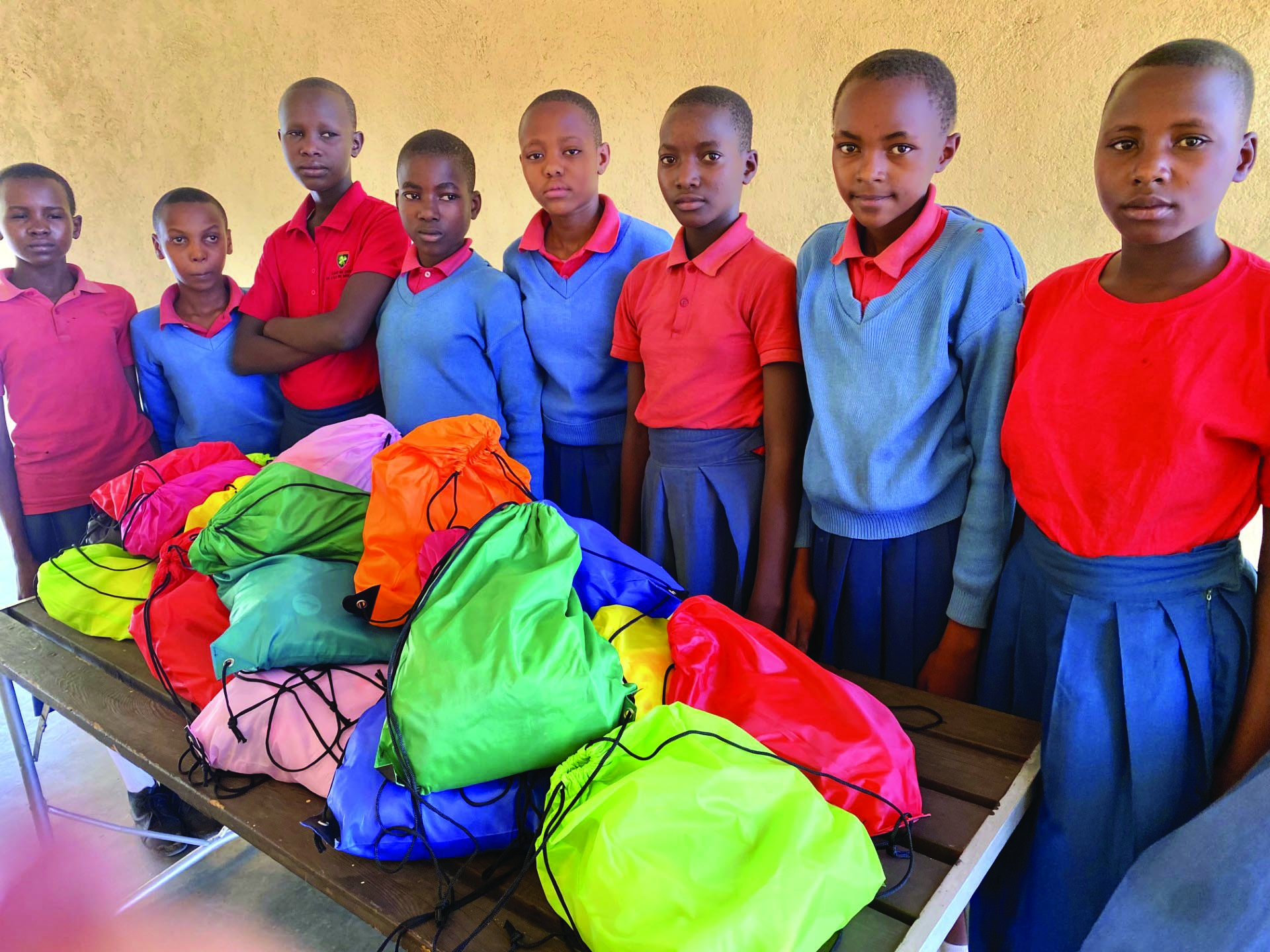
7th grade girls receive care packages from the National Charity League.
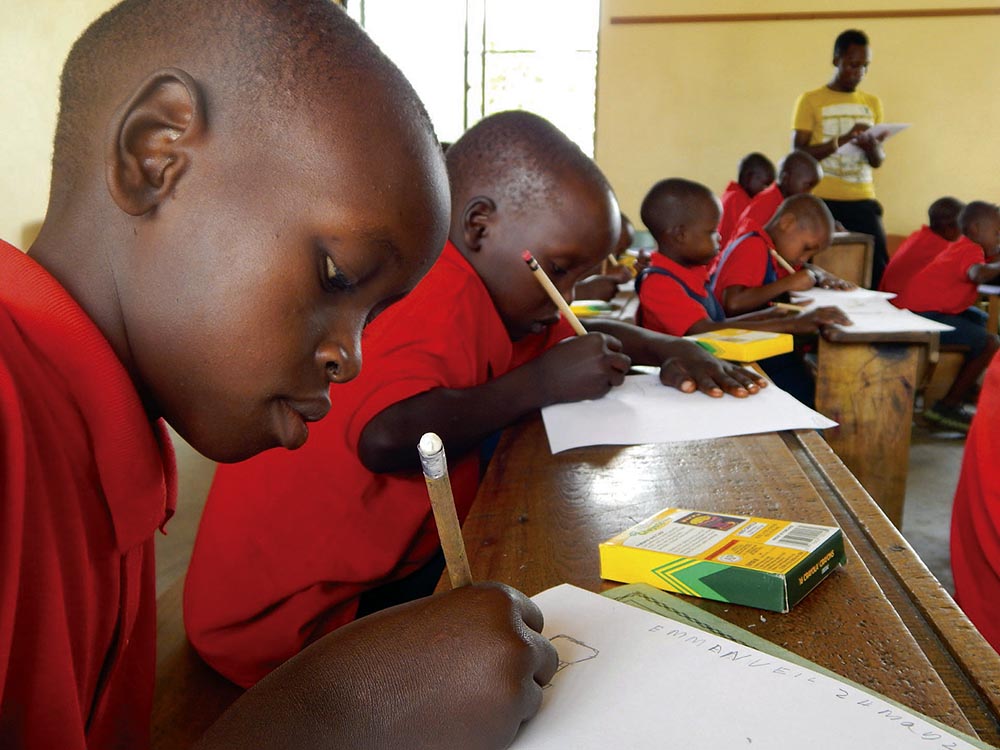
The Maasai students have been provided with school supplies from donations.
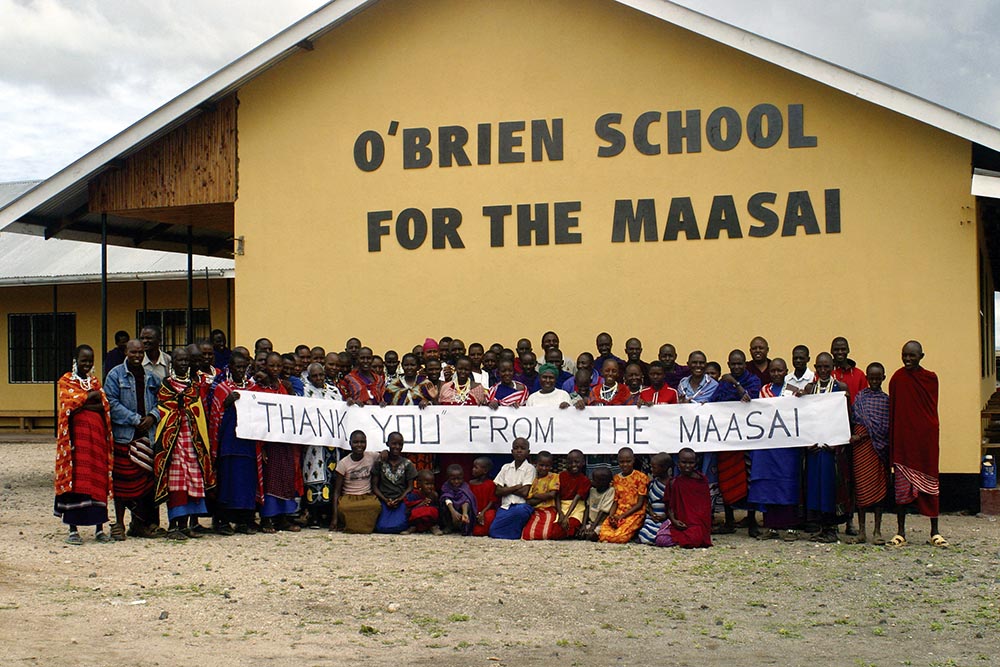
The Maasai people show their appreciation.
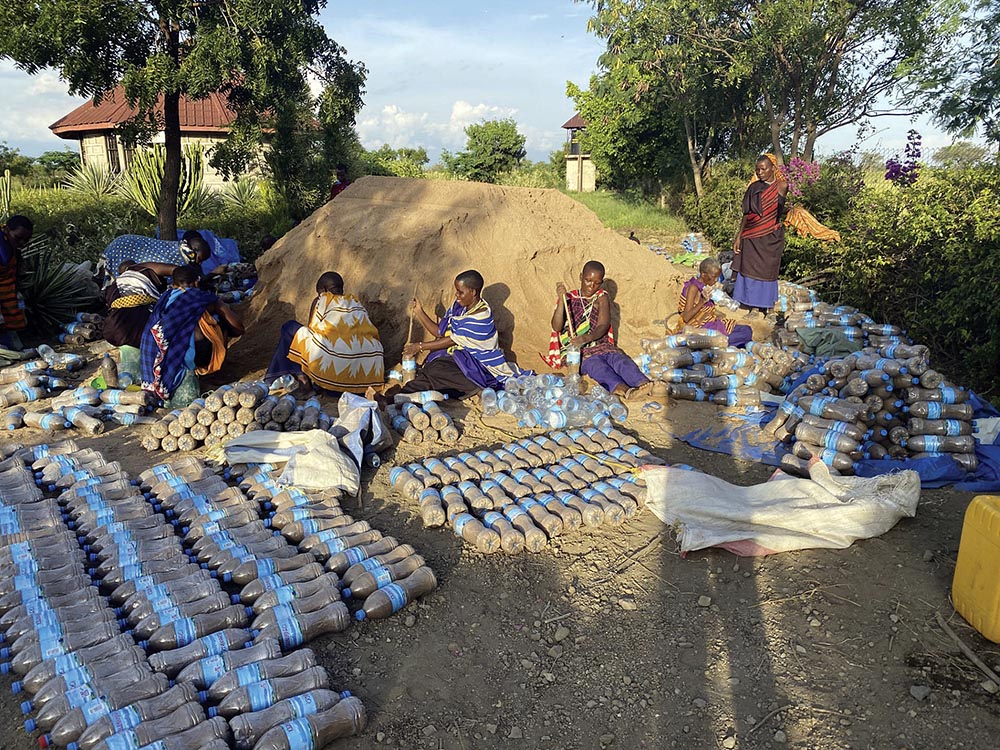
Maasai women helping construct the Reception House out of plastic water bottles.
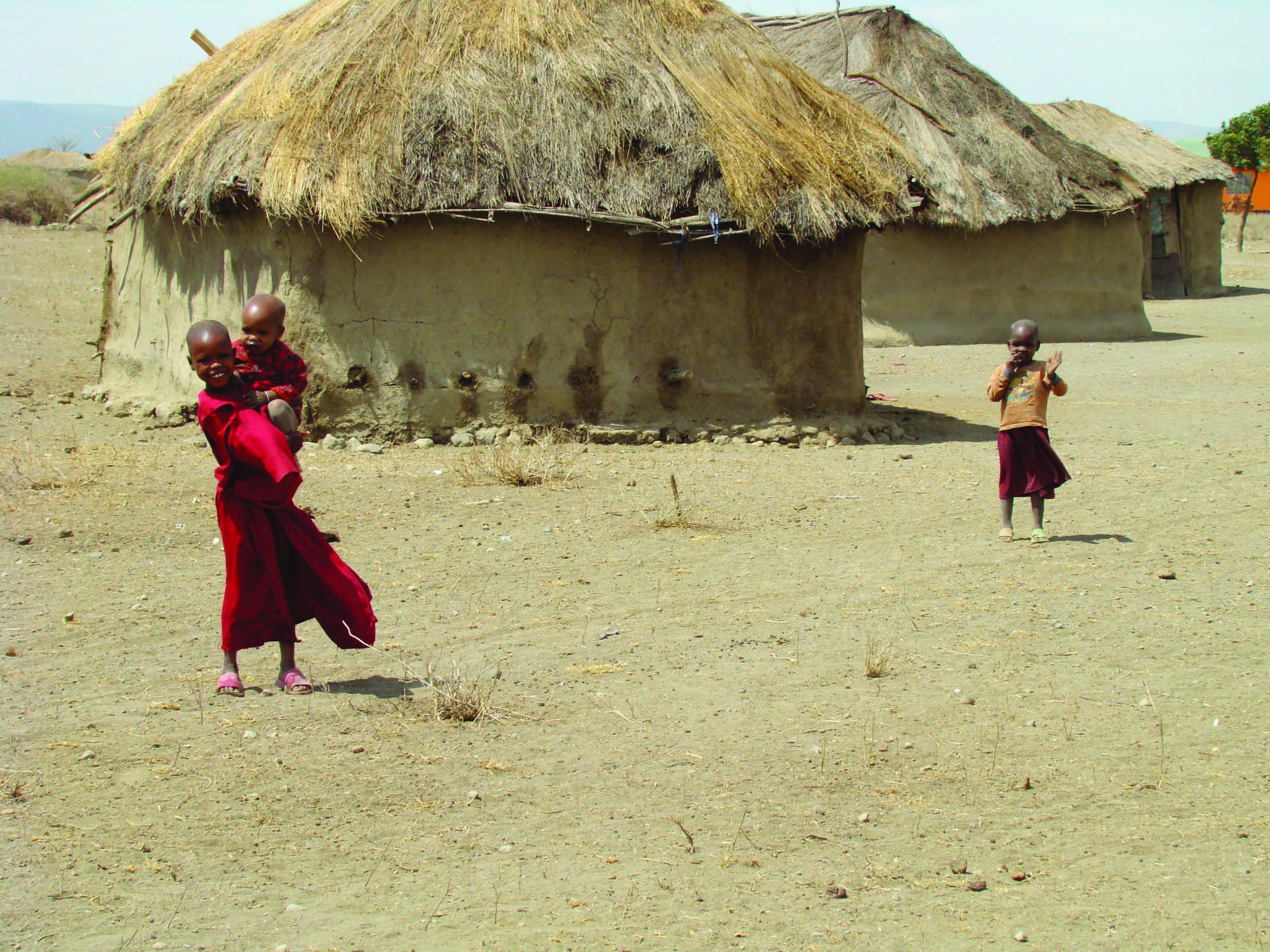
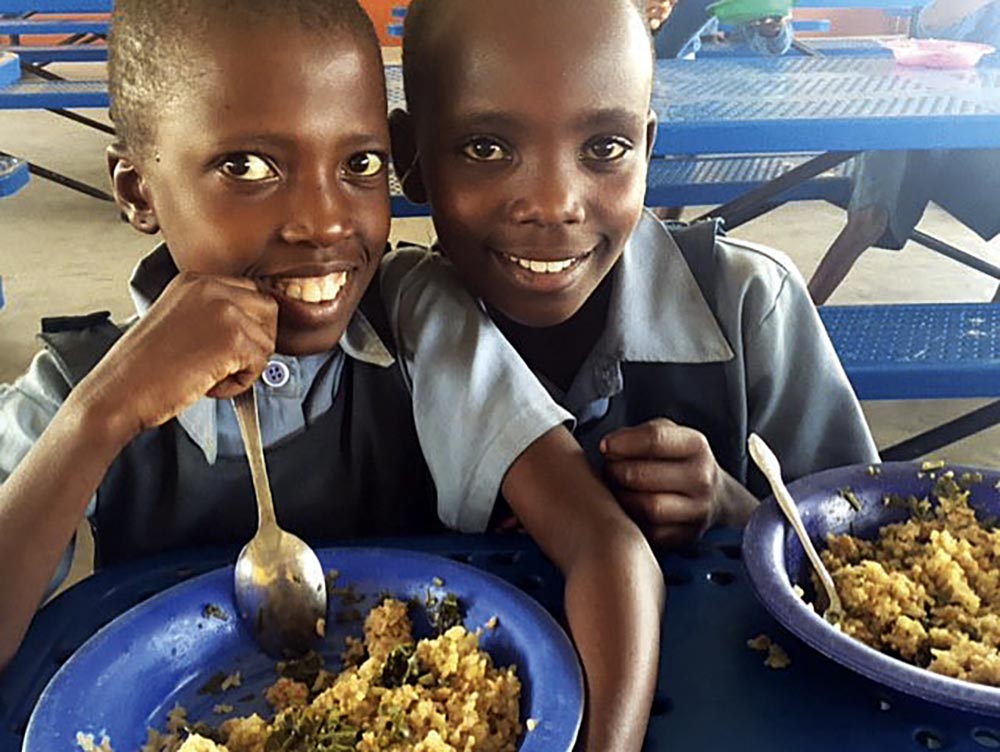
Maasai children eating the Feed My Starving Children manna packs. One of the homes of the Maasai villagers.



















